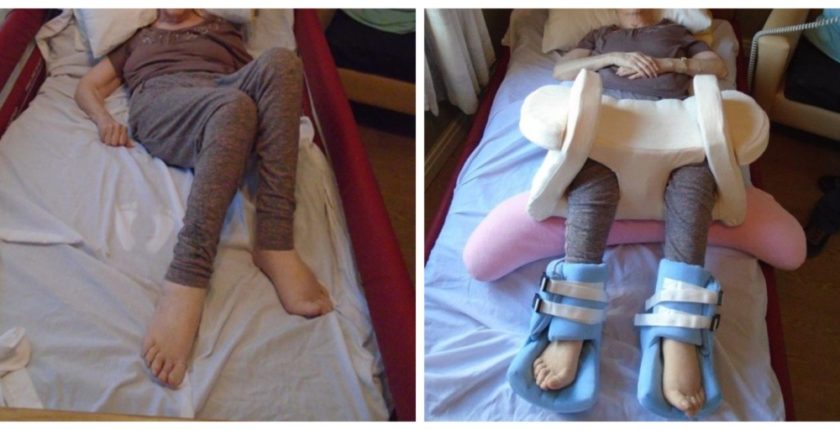Care home study reveals benefits of night-time positioning
[ad_1]
 The positioning aids were found to have significant health benefits for residents
The positioning aids were found to have significant health benefits for residentsA care home study has revealed that night-time positioning can help improve quality of life and reduce pain medication for people with conditions such as Parkinson’s, rheumatoid arthritis, asthma and dementia.
The study was carried out by The University of Salford with 12 residents at Four Seasons Health Care’s Cameron House in Bury.
Carol Bartley, lecturer in Occupational Therapy at the University of Salford, said: “Many health professionals have been calling for research into the effect positioning aids have on adults with complex needs, but this is the first time that any serious analysis has been carried out. We’ve found the effects have been significant across a wide range of measures.”

Advertisement
The project entailed providing positioning aids made by specialist manufacturer Simple Stuff Works that met the individual needs of each resident.
The positioning aids consisted of specially designed pillows and support systems to take pressure off the body, make sleeping more comfortable and prevent residents from getting into positions that could adversely affect them.
The results showed significant improvements to residents’ quality of life, including improved sleep for most (70%) of the participants. Almost two thirds (60%) reported less pain and the remaining 40% had no pain, including a resident amputee who no longer experienced phantom pain in his leg by the end of the study.
Pain medication (analgesia) was reduced or discontinued in 40% of the participants. Asthma medication was able to be discontinued for one participant by the end of the study.
Food and fluid intake was also improved, with 50% of the residents gaining weight which is beneficial to people suffering from a deteriorating condition, while 20% also saw a reduction in the need for laxative medication.
Choke risk was also reduced by half (50%), including one participant who started the study requiring continuous assisted feeding while seated/lying in bed, but by week 12 was able to sit unaided and feed himself.
Depression was seen to decrease by almost a third (30%). The study participants showed higher levels of social engagement in the day, such as taking part in activities and games and better interactions when relatives came to visit.
[ad_2]
Source link

